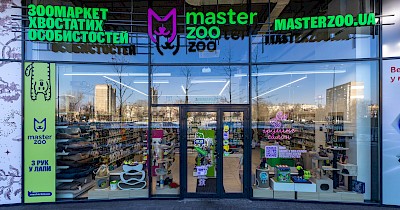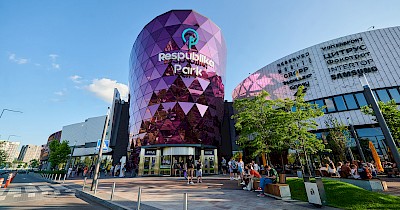

Report: Walmart in early stage of developing new store format—and that’s not all
When Walmart paid $3 billion for Jet.com and its founder Marc Lore, the promise was that the entrepreneur would help the retailer appeal to new types of customers.
Here’s the next step in that evolution.
A new Walmart subsidiary, called Code Eight, has recently started testing a personal shopping service for “busy NYC moms,” according to multiple sources, with the goal of letting them get product recommendations and make purchases simply through text messaging.
The target customer of Code Eight is described in an online job listing as a “high net worth urban consumer” — translation: A rich city dweller — certainly not the historical sweet spot for Walmart’s main business.
Household items are delivered for free within 24 hours; other purchases are delivered within two business days. Returns are picked up for free at a customer’s apartment building or house.
Walmart’s startup incubator, Store No. 8, is also working on another under-the-radar project, dubbed Project Kepler. This effort aims to reimagine the in-store shopping experience with the help of technologies like computer vision.
Multiple people familiar with the project tell Recode that one goal of the initiative is the creation of physical stores that would operate without checkout lines or cashiers — in a similar fashion to Amazon’s futuristic Amazon Go store, which was announced a year ago but has yet to open to the public.
A Walmart spokesperson declined to comment.
Taken together, these Walmart initiatives mark a major leap in the vision for the type of businesses Walmart will operate, and customers it will serve, five or 10 years down the line. But since both business strategies are in early stages, there is no guarantee that either will develop into a long-term business or launch widely.
Walmart had previously announced that Rent the Runway co-founder Jennifer Fleiss is heading up Code Eight, but has revealed little to no details about the startup.
Recode has learned that Code Eight plans to eventually charge a membership fee, but current testers are using it for free. The personal-shopping service is currently focused on items in “health & beauty, household essentials and apparel/accessories” categories, according to a job listing. It’s not clear if the startup is sourcing this inventory from Walmart and its subsidiaries, or from outside retailers.
Code Eight has told early users that they can order products simply by texting a photo of it. They can also message with a general request for a type of product they need, and leave it up to the service to pick the specific item for them; customers fill out a survey upon joining that is supposed to help personalize their experience.
One source says that the Code Eight product has the appearance of an automated bot, but seems like a human is actually the one communicating on the other end of the message. That may change over time.
“[W]e set our sights on taking the lead in conversational commerce by leveraging machine learning, NLP, and personalization algorithms,” a Code Eight job listing reads. NLP refers to natural language processing — essentially, how a computer turns a human’s spoken or written request into instructions it can process.
The Project Kepler project focused on the future of in-store shopping is being led by Mike Hanrahan, the co-founder and former chief technology officer for Jet.com, multiple sources tell Recode. It is located in Hoboken, N.J., where Jet is based.
A Project Kepler job listing for a “computer vision engineer” says that the role will involve creating a “best-in-class consumer experience in the physical retail space.”
Amazon’s Go concept uses a combination of sensors and cameras to track what each store shopper takes off of shelves so it can automatically bill them for their purchase without their having to stop to pay on the way out. The store’s launch has been severely delayed, however, with reports that the technology did not work well when the store was crowded.
Walmart is envisioning a similar system that would potentially eliminate the need for cashiers in stores outfitted with the technology. Walmart has more than two million employees worldwide, many of whom work at checkout.
But it’s possible that the Project Kepler technology would be used in new types of store formats, rather than be retrofitted for existing stores. This project is just one of several across Walmart focused on what the retail store of the future should look like, according to a source.
From: recode.net
Read more –
Read also


Respublika Park Leads Kyiv Shopping Malls in Tax Payments


